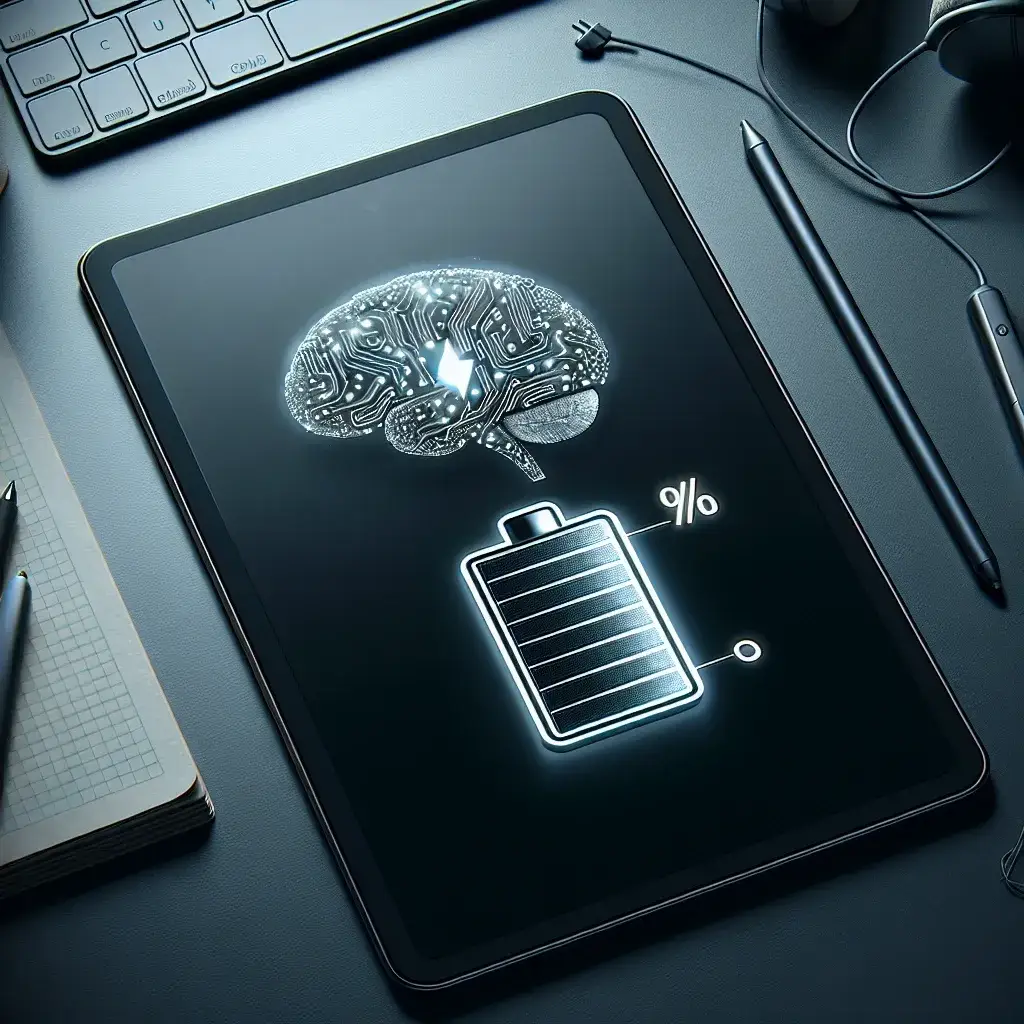
How do tablets with AI-enhanced battery management extend usage time?
Tablets have become essential in our daily lives, used for work, entertainment, communication, and more. With their increased functionality comes a higher demand for battery efficiency. Artificial Intelligence (AI)-enhanced battery management has emerged as a pivotal advancement allowing users to enjoy prolonged usage time. But how does this technology achieve it?
What is AI-Enhanced Battery Management?
AI-enhanced battery management refers to the application of artificial intelligence algorithms to optimize the usage and charging patterns of a device’s battery. By learning from users’ habits and making real-time adjustments, AI can significantly enhance battery performance.
Key Functions of AI in Battery Management
- Analyzing user behavior
- Optimizing power distribution
- Preventing overcharging
- Extending battery health
User Behavior Analysis
AI algorithms analyze user behavior to understand how and when a device is typically used. This includes examining which apps are frequently accessed, the time periods of heavy usage, and periods of inactivity. Based on this data, it can adjust battery consumption to prioritize essential functions and reduce power for less critical operations.
Example Scenario
| Scenario | AI Adjustment |
|---|---|
| High app usage in the morning | Prioritize battery for morning usage |
| Video watching during evening | Optimize power for video playback |
| Device idle at night | Minimize power consumption |
Optimizing Power Distribution
AI can iteratively optimize the distribution of power among various components of the tablet, such as the CPU, display, and wireless modules. By dynamically allocating resources, it ensures essential processes get prioritized, reducing wastage and extending battery life. For instance, during gameplay, AI might allocate more power to the GPU while dimming the display slightly to conserve battery.
Example of Power Distribution
- CPU: Reduced frequency during document reading
- Display: Adaptive brightness based on ambient light
- GPS: Power-hungry apps restricted while on battery saver mode
Preventing Overcharging
Another crucial aspect of AI-enhanced battery management is the prevention of overcharging. Overcharging can significantly reduce battery lifespan. AI can smartly manage charging cycles ensuring that the device never exceeds the optimal charge level. Techniques such as trickle charging and adaptive battery charging protocols are employed to maximize battery health.
Example of Overcharge Prevention
- Trickle charge when battery is above 90%
- Scheduled charging based on user habits to avoid overcharge
Extending Battery Health
AI not only focuses on short-term battery life but also on the long-term health of the battery. By learning and adapting to the charging and usage habits of the user, the AI can propose optimizations that minimize wear and tear on the battery, thereby extending its overall lifespan.
Methods to Extend Battery Health
- Optimized charging cycles
- Temperature control to prevent overheating
- Regular prompts to calibrate battery
Benefits of AI-Enhanced Battery Management
The benefits of AI-enhanced battery management are multifaceted, impacting both individual users and businesses alike. Here are some key benefits:
- Longer Usage Time: Enhanced efficiency means users can enjoy longer periods of non-stop usage.
- Cost Savings: Prolonged battery health and lifespan reduce the need for frequent replacements.
- Sustainability: Fewer battery replacements translate to less electronic waste, contributing to environmental conservation.
- User Convenience: Intelligent battery management minimizes the inconvenience of unexpected shutdowns and frequent charging.
Future Trends
The future of AI-enhanced battery management looks promising with advancements in machine learning algorithms, real-time data processing, and integration with IoT devices. In the near future, we can expect even more personalized and efficient battery management systems tailored to individual user profiles and needs.
Conclusion
AI-enhanced battery management in tablets represents a significant stride towards more intelligent and efficient power usage. By analyzing user behavior, optimizing power distribution, preventing overcharging, and extending battery health, AI has the potential to revolutionize our digital experiences. As this technology continues to evolve, we can look forward to even greater enhancements in battery performance, making our devices more reliable and sustainable.




Leave a Comment